Does Racism Have Roots in Evolution?
 Scientists at Yale University have produced evidence that human beings’ fear of people from outside their group may be an innate trait passed down by millions of years of evolution. In research published in the Journal of Personality and Social Psychology, the Yale study found that monkeys treat individuals from outside their group with suspicion and distrust. Scientists at Yale University have produced evidence that human beings’ fear of people from outside their group may be an innate trait passed down by millions of years of evolution. In research published in the Journal of Personality and Social Psychology, the Yale study found that monkeys treat individuals from outside their group with suspicion and distrust.
Laurie R. Santos, associate professor of psychology at Yale and the lead researcher, stated that “every conflict in human history has involved people making distinctions on the basis of who is a member of their own race, religion, social class, and so on.” Her research finds that “this tendency to dislike outgroup members appears to be evolutionarily quite old, and therefore may be less simple to eliminate than we’d like to think.”
New Study Finds That Graduates of HBCUs Outperform Black Graduates of Traditionally White Educational Institutions
 A new study by economists at Morehouse College and Howard University shows that African-Americans who graduate from a historically black college or university do better financially and psychologically than African Americans who graduate from traditionally white colleges and universities. The statistical study, published in the Review of Black Political Economy, is authored by Gregory N. Price of Morehouse College and William Spriggs and Omari H. Swinton of Howard University. A new study by economists at Morehouse College and Howard University shows that African-Americans who graduate from a historically black college or university do better financially and psychologically than African Americans who graduate from traditionally white colleges and universities. The statistical study, published in the Review of Black Political Economy, is authored by Gregory N. Price of Morehouse College and William Spriggs and Omari H. Swinton of Howard University.
The authors conclude, “Our results suggest that HBCU graduates realize higher earnings relative to non-HBCU graduates. As such, our results lend support to the idea that HBCUs continue to have a compelling educational justification, as the labor market outcomes of their graduates are superior to what they would have been had they graduated from a non-HBCU. Our estimates of the effects HBCUs have on the psychological outcomes of graduates also lend support to the idea that HBCUs have a comparative advantage in nurturing the self-image, self-esteem, and identity of graduates.”
Princeton University Undergraduates Mount Tutoring Program for Minority Sixth Graders in Trenton Public Schools
The Student Volunteers Council of the Pace Center for Civic Engagement at Princeton University sends a group of tutors to the Martin Luther King Jr. elementary school in Trenton. The Princeton undergraduate students help sixth graders, most from underrepresented minority groups, with grammar and study skills. Twice a week the Princeton students meet with groups of three or four sixth graders for 45 minutes
 Noliwe Rooks, associate director of Princeton’s Center for African-American studies, states, “We’re making it possible for Princeton students to be on the front lines of addressing educational inequality in the public schools.” Noliwe Rooks, associate director of Princeton’s Center for African-American studies, states, “We’re making it possible for Princeton students to be on the front lines of addressing educational inequality in the public schools.”
Angel Harris, an assistant professor of sociology and African-American studies at Princeton, is monitoring the tutoring effort and will evaluate its effectiveness at the end of the school year.

UNIVERSITY OF CONNECTICUT
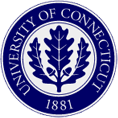
Computer Technical Support I (UCP 4), School of Law
Computer Technical Support position at University of Connecticut School of Law in Hartford, CT. Responsibilities include: providing helpdesk coverage, technical support for computer hardware, software & A.V., troubleshooting & problem resolution, classroom technology & events support. Qualifications include BA/BS; prior computer technical support experience in a fast paced environment or equivalent combination; excellent communication skills w/ end-users necessary; experience providing IT support in academic environment preferred. Work schedule changes based on academic calendar; current academic year schedule: Monday - Thursday, 11:00 a.m. - 7:00 p.m. and Friday, 9:00 a.m. - 5:00 p.m.
For additional information & application details, see: http://www.jobs.uconn.edu. Salary: $40,000.
The University of Connecticut is an EEO/AA employer.
(Search # 2011453)

Tuskegee to Offer Three New Degree Programs
 The board of trustees at historically black Tuskegee University in Alabama has approved the establishment of three new degree programs. Beginning in the fall of 2011, Tuskegee will offer a bachelor’s degree program in information technology. In addition, there will be a new master of public health degree and a master of science degree in public health. The board of trustees at historically black Tuskegee University in Alabama has approved the establishment of three new degree programs. Beginning in the fall of 2011, Tuskegee will offer a bachelor’s degree program in information technology. In addition, there will be a new master of public health degree and a master of science degree in public health.
The Tuskegee board of directors also directed the university provost to develop undergraduate academic programs in civil engineering, forensic science, and mass communication. Also under development will be master’s degree programs in bioethics and psychology and Ph.D. programs in veterinary science and agricultural engineering.
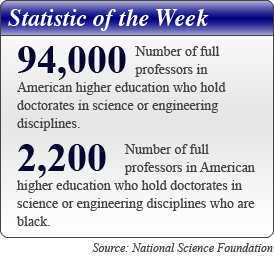
Historically Black University Invests in Solar Energy
 The University of Maryland Eastern Shore recently activated a 7,800-panel solar energy facility on its campus in Princess Anne. The facility, covering 17 acres of land, is the largest solar energy project in the state of Maryland. The new solar energy plant is projected to produce 3.3 million kilowatt hours within its first year. The University of Maryland Eastern Shore recently activated a 7,800-panel solar energy facility on its campus in Princess Anne. The facility, covering 17 acres of land, is the largest solar energy project in the state of Maryland. The new solar energy plant is projected to produce 3.3 million kilowatt hours within its first year.
In Memoriam
Emmett John Rice 1919-2011
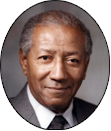 Emmett J. Rice, former governor of the Federal Reserve Board and professor of economics at Cornell University, has died from congestive heart failure at his home in Camas, Washington. Rice, the father of Susan Rice, the current United States Ambassador to the United Nations, was 91 years old. Emmett J. Rice, former governor of the Federal Reserve Board and professor of economics at Cornell University, has died from congestive heart failure at his home in Camas, Washington. Rice, the father of Susan Rice, the current United States Ambassador to the United Nations, was 91 years old.
A native of Florence, South Carolina, Rice’s family moved to New York City when he was 16. He earned a bachelor’s degree and an MBA from the City University of New York. After serving with the Tuskegee Airmen during World War II, Rice earned a Ph.D. in economics from the University of California at Berkeley. Rice taught economics at Cornell University for six years before taking positions with the Treasury Department, the World Bank and the Federal Reserve Bank of New York. In 1979 he was appointed by President Jimmy Carter to the board of governors of the Federal Reserve Board. He was the second African American to serve on the board.
Jennifer Young Tait (1975-2011)
 Jennifer Young Tait, associate professor of English at Hope College in Holland, Michigan, died last month during childbirth. She was 35 years old. Jennifer Young Tait, associate professor of English at Hope College in Holland, Michigan, died last month during childbirth. She was 35 years old.
Professor Tait was a graduate of Rutgers University. She held a master’s degree from the City University of New York and a Ph.D. from Howard University. She began teaching at Hope College in 2002 and was awarded tenure in 2009.
Appointments, Promotions, and Resignations
 • Robert L. Johnson was appointed the eighth dean of the medical school at the University of Medicine and Dentistry of New Jersey. He has served as interim dean since September 2005. He joined the faculty of the medical school in 1976 after graduating from the school in 1972. He will continue to serve as professor of pediatrics and psychiatry. • Robert L. Johnson was appointed the eighth dean of the medical school at the University of Medicine and Dentistry of New Jersey. He has served as interim dean since September 2005. He joined the faculty of the medical school in 1976 after graduating from the school in 1972. He will continue to serve as professor of pediatrics and psychiatry.
 • Asantewa Boakyewa was named administrator of the Center for Africana Studies at Johns Hopkins University. She had served as a research fellow in the university’s Diaspora Pathways Archival Access Project. Boakyewa is a graduate of Morgan State University. • Asantewa Boakyewa was named administrator of the Center for Africana Studies at Johns Hopkins University. She had served as a research fellow in the university’s Diaspora Pathways Archival Access Project. Boakyewa is a graduate of Morgan State University.
 • Thomas G. Coley was named chancellor of the north-central region of Ivy Tech Community College in South Bend, Indiana. He has served since 2005 as president of Scott Community College in Bettendorf, Iowa. • Thomas G. Coley was named chancellor of the north-central region of Ivy Tech Community College in South Bend, Indiana. He has served since 2005 as president of Scott Community College in Bettendorf, Iowa.
Dr. Coley is a graduate of Moorhead State University. He holds a master’s degree and an educational doctorate from the University of Wisconsin.
 • Phyllis Worthy Dawkins was promoted to senior vice president and provost at Dillard University in New Orleans, effective in May. She currently is serving as associate provost. • Phyllis Worthy Dawkins was promoted to senior vice president and provost at Dillard University in New Orleans, effective in May. She currently is serving as associate provost.
Dr. Dawkins is a graduate of Johnson C. Smith University in Charlotte, North Carolina. She holds a master’s degree from the University of Michigan and a Ph.D. from Ohio State University.
 • Karen Mathews was named director of student health services at Central State University in Wilberforce, Ohio. She was the master clinician at Wright-Patterson Air Force Base. Dr. Mathews received her medical training at Washington University School of Medicine in St. Louis. • Karen Mathews was named director of student health services at Central State University in Wilberforce, Ohio. She was the master clinician at Wright-Patterson Air Force Base. Dr. Mathews received her medical training at Washington University School of Medicine in St. Louis.
 • Marlon Hall was promoted to the position of vice president of student services at West Hills College in Coalinga, California. • Marlon Hall was promoted to the position of vice president of student services at West Hills College in Coalinga, California.
Dr. Hall holds bachelor’s degrees from West Coast Christian College and California State University at Fresno. He earned master’s degrees at CalState Fresno and Fresno Pacific University and an educational doctorate at the Fielding Graduate University in Santa Barbara.
 • Allison Dorsey was promoted to full professor of history at Swarthmore College in Pennsylvania. Professor Dorsey holds a master’s degree and a Ph.D. in history from the University of California at Irvine. • Allison Dorsey was promoted to full professor of history at Swarthmore College in Pennsylvania. Professor Dorsey holds a master’s degree and a Ph.D. in history from the University of California at Irvine.
 • Abdul K. Mohammed was named dean of the College of Science and Technology at North Carolina Central University in Durham. He was chair of the department of chemistry at Winston-Salem State University. • Abdul K. Mohammed was named dean of the College of Science and Technology at North Carolina Central University in Durham. He was chair of the department of chemistry at Winston-Salem State University.
Dr. Mohammed is a graduate of the University of Benin in Nigeria. He holds a Ph.D. in inorganic chemistry from Louisiana State University.
Grants and Gifts
• Tuskegee University, the historically black educational institution in Alabama, is among a consortium of universities sharing in a five-year, $9.6 million grant from the U.S. Agency for International Development to increase agricultural food production and security in northern India.
• American Baptist College in Nashville, Tennessee, received a $900,000 grant from the Lilly Endowment of Indianapolis for its African American Lectionary Project.
• Central State University, the historically black educational institution in Wilberforce, Ohio, is participating in a five-year, $2.6 million grant from the National Science Foundation that will seek to develop sustainable agricultural practices in the Sahel region of Africa, just south of the Sahara Desert. Ohio State University, the University of California at Merced and the University of Thies in Senegal will also be involved in the project.
• The Thurgood Marshall Scholarship Fund received a $200,000 grant from United Student Funds Inc. The grant will be used for scholarships for students attending the 47 black colleges and universities that are members of the fund.
|
There Are Very Few Black Graduate Students in Many Scientific Fields
New data from the National Science Foundation shows that in 2008 there were 16,839 blacks enrolled full-time in scientific programs in U.S. graduate schools. They made up 4.4 percent of all full-time graduate students in scientific disciplines.
However, the data shows that in many disciplines, blacks make up a very small percentage of full-time student enrollments. For example, there were 168 blacks among the 12,626 graduate students in the field of physics. Only seven of the 1,233 full-time graduate students in astronomy in 2008 were African Americans. Blacks made up 1 percent or less of the graduate students in botany, zoology, and ecology.
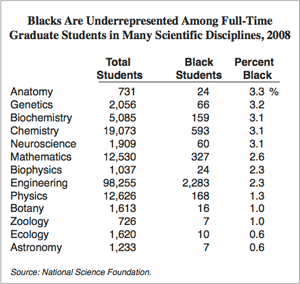
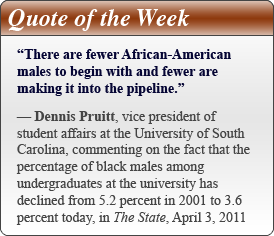
Black Woman Selected for High Post in U.S. Department of Education
 The Obama administration has chosen Debra Saunders-White as the new deputy assistant secretary of education for higher education programs. Since 2006 Saunders-White has served as vice chancellor for information technology at the University of North Carolina at Wilmington. Previously, she was vice president of technology and chief information officer at Hampton University in Virginia. The Obama administration has chosen Debra Saunders-White as the new deputy assistant secretary of education for higher education programs. Since 2006 Saunders-White has served as vice chancellor for information technology at the University of North Carolina at Wilmington. Previously, she was vice president of technology and chief information officer at Hampton University in Virginia.
A graduate of the University of Virginia, Dr. Saunders-White holds an MBA from the College of William and Mary and an educational doctorate from George Washington University.
Meharry/Vanderbilt Study Finds Menthol Cigarettes, Which Are Popular Among Blacks, May Be Less Harmful Than Other Cigarettes
A study by researchers at historically black Meharry Medical College and Vanderbilt University has determined that while all smoking has detrimental health effects, smokers of menthol cigarettes may not be at as high a risk as other smokers. This is particularly noteworthy because blacks are far more likely than whites to smoke menthol cigarettes.
The results, published in the Journal of the National Cancer Institute, show that people who smoke a pack a day or more of menthol cigarettes are 12 times as likely as nonsmokers to develop lung cancer. But those who smoke a pack a day or more of nonmenthol brands are 21 times as likely as nonsmokers to get lung cancer.
 Some consumer groups have advocated a ban on menthol cigarettes because the flavor is more appealing to young smokers. Newport is the largest selling menthol brand with about 35 percent of the total menthol market. Some consumer groups have advocated a ban on menthol cigarettes because the flavor is more appealing to young smokers. Newport is the largest selling menthol brand with about 35 percent of the total menthol market.
One of the coauthors of the study is Dr. Margaret K. Hargreaves. She is director of the Prevention Research Unit in the department of internal medicine at Meharry Medical College.
George Washington University Honors Dorothy Height
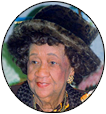 George Washington University in the nation’s capital has announced the establishment of the Dorothy I. Height Scholarship for Public Service. The scholarship honors Dr. Height who led the National Council of Negro Women for nearly half a century. Height died in April 2010 at the age of 98. George Washington University in the nation’s capital has announced the establishment of the Dorothy I. Height Scholarship for Public Service. The scholarship honors Dr. Height who led the National Council of Negro Women for nearly half a century. Height died in April 2010 at the age of 98.
The new scholarship will provide $10,000 to an incoming freshman student with financial need. The recipient will be required to perform 100 hours of community service during the academic year.
In addition to the scholarship, the university will construct a memorial stone bench to honor Height near the Graduate School of Education and Human Development.
A native of Richmond, Virginia, Height was raised near Pittsburgh. She was accepted to Barnard College but was denied admission because the college had already enrolled its quota of two African Americans. She went on to earn a bachelor’s and master’s degree at New York University.
Recent Books That May Be of Interest to African-American Scholars
 The JBHE Weekly Bulletin regularly publishes a list of new books that may be of interest to our readers. Here are the latest selections. Click on any of the titles for more information or to purchase via Amazon. The JBHE Weekly Bulletin regularly publishes a list of new books that may be of interest to our readers. Here are the latest selections. Click on any of the titles for more information or to purchase via Amazon.
• 12 Angry Men: True Stories of Being a Black Man in America Today edited by Gregory S. Parks and Matthew W. Hughey (The New Press)
• Black Faces of War by Robert V. Morris (Zenith Press)
• Bridging Race Divides: Black Nationalism, Feminism, and Integration in the United States, 1896-1935 by Kate Dossett (University Press of Florida)
• Enacting Others: Politics of Identity in Eleanor Antin, Nikki S. Lee, Adrian Piper, and Anna Deavere Smith by Cherise Smith (Duke University Press)
• Fighting Their Own Battles: Mexican Americans, African Americans, and the Struggle for Civil Rights in Texas by Brian D. Behnken (University of North Carolina Press)
• Gary: The Most American of All American Cities by S. Paul O’Hara (Indiana University Press)
• Keepin’ It Hushed: The Barbershop and African American Hush Harbor Rhetoric by Vorris L. Nunley (Wayne State University Press)
• Making Care Count: A Century of Gender, Race, and Paid Care Work by Mignon Duffy (Rutgers University Press)
• Minority Women Entrepreneurs: How Outsider Status Can Lead to Better Business Practices by Mary Godwyn and Donna Stoddard (Stanford University Press)
• Queer Pollen: White Seduction, Black Male Homosexuality, and the Cinematic by David A. Gerstner (University of Illinois Press)
• Race and Sex Across the French Atlantic: The Color of Black in Literary, Philosophical, and Theater Discourse by Frieda Ekotto (Lexington Books)
• Sorcery in the Black Atlantic edited by Luis Nicolau Pares and Roger Sansi (University of Chicago Press)
• Strange Jeremiahs: Civil Religion and the Literary Imaginations of Jonathan Edwards, Herman Melville, and W.E.B. Du Bois by Carole Lynn Stewart (University of New Mexico Press)
• The Almighty Black P Stone Nation: The Rise, Fall, and Resurgence of an American Gang by Natalie Y. Moore and Lance Williams (Lawrence Hill Books)
• The City, Revisited: Urban Theory From Chicago, Los Angeles, and New York edited by Dennis R. Judd and Dick Simpson (University of Minnesota Press)
• The Imperative of Integration by Elizabeth Anderson (Princeton University Press)
• The Postwar African American Novel: Protest and Discontent, 1945-1950 by Stephanie Brown (University Press of Mississippi)
• The Vigorous Core of Our Nationality: Race and Regional Identity in Northeastern Brazil by Stanley E. Blake (University of Pittsburgh Press)
Honors and Awards
 • Linda K. Thomas-Glover, president of Eastern Shore Community College in Melfa, Virginia, was given the Distinguished Alumna Award from South Carolina State University. • Linda K. Thomas-Glover, president of Eastern Shore Community College in Melfa, Virginia, was given the Distinguished Alumna Award from South Carolina State University.
Dr. Thomas-Glover is a graduate of South Carolina State University. She holds a master’s degree from the State University of New York at Buffalo and a Ph.D. in chemistry from Temple University.
 • Vanessa D. Nesbit, senior management and budget analyst for the College of Mathematics, Natural Sciences, and Technology at Delaware State University, received top honors in the Delaware Press Association’s Communications Contest for her newest book of poetry entitled Rivers Running in Desert Places. • Vanessa D. Nesbit, senior management and budget analyst for the College of Mathematics, Natural Sciences, and Technology at Delaware State University, received top honors in the Delaware Press Association’s Communications Contest for her newest book of poetry entitled Rivers Running in Desert Places.
 • Angela Neal-Barnett, an associate professor of psychology at Kent State University in Ohio, received the 2011 Harold K. Stubbs Humanitarian Award from the St. Paul African Methodist Episcopal Church in Akron. Professor Neal-Barnett was honored for her work in the study of anxiety disorders among African Americans. • Angela Neal-Barnett, an associate professor of psychology at Kent State University in Ohio, received the 2011 Harold K. Stubbs Humanitarian Award from the St. Paul African Methodist Episcopal Church in Akron. Professor Neal-Barnett was honored for her work in the study of anxiety disorders among African Americans.
Dr. Neal-Barnett is a graduate of Mount Union College. She holds master’s and doctoral degrees from DePaul University in Chicago.
 • Orlan M. Johnson, a partner in the Washington law firm Saul Ewing and a member of the board of regents of the University System of Maryland, received the Trailblazer Award from the African-American Council of the U.S. Securities and Exchange Commission. • Orlan M. Johnson, a partner in the Washington law firm Saul Ewing and a member of the board of regents of the University System of Maryland, received the Trailblazer Award from the African-American Council of the U.S. Securities and Exchange Commission.
Johnson is a graduate of Andrews University and the Howard University School of Law.
 • Walter Washington, who served as president of historically black Alcorn State University in Mississippi from 1969 to 1994, was honored by the designation of a section of Mississippi Highway 552 as the Dr. Walter Washington Parkway. • Walter Washington, who served as president of historically black Alcorn State University in Mississippi from 1969 to 1994, was honored by the designation of a section of Mississippi Highway 552 as the Dr. Walter Washington Parkway.
Dr. Washington, who died in 1999, was a graduate of Tougaloo College. He earned a master’s degree from Indiana University and in 1969 was the first African American to earn a doctorate at the University of Southern Mississippi.
 • Jesse McCarroll, professor emeritus of music at New York City College of Technology, received the Lifetime Achievement Award from the National Association for the Study and Performance of African-American Music. • Jesse McCarroll, professor emeritus of music at New York City College of Technology, received the Lifetime Achievement Award from the National Association for the Study and Performance of African-American Music.
Dr. McCarroll is a graduate of the Cleveland Institute of Music. He holds master’s and doctoral degrees from Teachers College at Columbia University.
|
 .
.